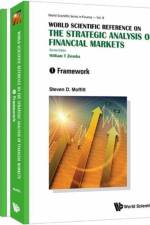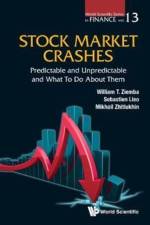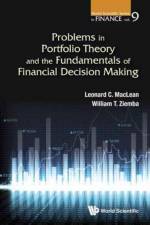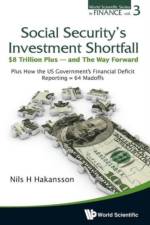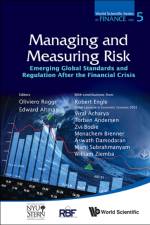av Steven D (Illinois Inst Of Technology & Market Pattern Research Moffitt
5 397
Volume 1 of ''The Strategic Analysis of Financial Markets,'' (Framework) is premised on the belief that markets can be understood only by dropping the assumptions of rationality and efficient markets in their extreme forms, and showing that markets still have an inherent order and inherent logic. But that order results primarily from the ''predictable irrationality'' of investors, as well as from people''s uncoordinated attempts to profit. The market patterns that result do not rely on rationality or efficiency.A framework is developed for understanding financial markets using a combination of psychology, statistics, game and gambling analysis, market history and the author''s experience. It expresses analytically how professional investors and traders think about markets ΓÇö as games in which other participants employ inferior, partially predictable strategies. Those strategies'' interactions can be toxic and lead to booms, bubbles, busts and crashes, or can be less dramatic, leading to various patterns that are mistakenly called ''market inefficiencies'' and ''stylized facts.''A logical case is constructed, starting from two foundations, the psychology of human decision making and the ''Fundamental Laws of Gambling.'' Applying the Fundamental Laws to trading leads to the idea of ''gambling rationality'' (grationality), replacing the efficient markets concept of ''rationality.'' By classifying things that are likely to have semi-predictable price impacts (price ''distorters''), one can identify, explore through data analysis, and create winning trading ideas and systems. A structured way of doing all this is proposed: the six-step ''Strategic Analysis of Market Method.'' Examples are given in this and the Volume 2.In a seminar I attended in 1993, Ed Seykota said words to the effect, ''Everything is known about trading ΓÇö there are no secrets.'' Maybe so, but lots of secrets are known only to a few traders. If this Volume and its companion are successful, lots of secrets will soon be known to lots more.Volume 2 of ''The Strategic Analysis of Financial Markets ΓÇö Trading Systems Analytics, continues the development of Volume 1 by introducing tools and techniques for developing trading systems and by illustrating them on real trading systems. The difference between these two Volumes and the rest of the literature is its rigor. It describes trading as a form of gambling that when properly executed, is quite logical, and is well known to professional gamblers and analytical traders. But even those elites might be surprised at the extent to which quantitative methods have been justified and applied, including a life cycle theory of trading systems.Apart from a few sections that develop background material, Volume 2 creates from scratch a trading system for Eurodollar futures (which took the author about 3 weeks to develop in November 2015) using principles of the Strategic Analysis of Markets Method (SAMM), a principled, step-by-step approach to developing profitable trading systems. It has an entire Chapter on mechanical methods for testing and improvement of trading systems, which transcends the rather unstructured and unsatisfactory ''backtesting'' literature. It presents a breakout trend following system developed using factor models. It presents a specific pairs trading system, and discusses its life cycle from an early, highly profitable period to its eventual demise. It discusses some recent developments in momentum trading and suggests improvements.

